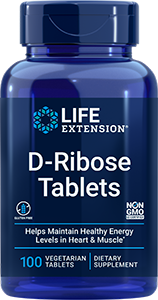 | January 21, 2011 | Beneficial fatty acids help relieve PMS symptoms | | On January 17, 2011, researchers from the University of Pernambuco in Brazil reported in the journal Reproductive Health the finding of improvements in premenstrual syndrome (PMS) in women given supplemental fatty acids. Premenstrual syndrome is a cluster of symptoms experienced during the half of the menstrual cycle prior to menses, which can affect up to 80 percent of all women of reproductive age. Although the effects of PMS can be severe enough to warrant treatment with hormones or antidepressant drugs, many women fail to seek medical therapy and continue to suffer monthly until menopause occurs. According to the authors of the article, women with PMS may be abnormally sensitive to the hormone prolactin, a phenomenon that could be related to reduced levels of prostaglandin E1, derived from dietary fatty acids, which can mitigate prolactin's effects. For the current trial, 120 women with PMS or premenstrual dysphoric disorder (PMDD), and regular menstrual cycles were divided to receive a 6 month regimen of one or two capsules per day containing 210 milligrams gamma linolenic acid (GLA), 175 milligrams oleic acid, 345 milligrams linoleic acid, 250 milligrams other polyunsaturated acids and 20 mg of vitamin E, or a placebo for 15 days, beginning on day 15 of each menstrual cycle. Premenstrual symptoms were scored daily, and prolactin levels were measured at the beginning and completion of the trial. By the end of the third cycle of treatment, symptom scores for both phases of the menstrual cycle improved among women who received either dose of fatty acids, compared to scores submitted at the beginning of the study. Symptoms further improved by the end of six months, particularly among those who received two grams of fatty acids. Although the placebo group's symptoms also improved by the third month, the decrease was no longer statistically significant after six months. Prolactin levels were not affected by the fatty acid regimen. "This reinforces the hypothesis that the improvement in symptoms is probably due to alterations in tissue sensitivity to this substance," Edilberto A. Rocha Filho and his colleagues write. "The physiopathology of PMS has yet to be fully clarified and may include the effect of estrogens, the effect of progesterone on neurotransmitters such as serotonin, opioids, catecholamines and GABA, a relative reduction in cortisol, suprarenal dysfunction and abnormalities in the hormonal regulation of water and salt in the body, a deficiency in the modulatory effects of gonadotrophins and their direct effect on other tissues, vitamin B6 deficiency, increased prolactin levels or increased sensitivity to the effects of prolactin, insulin resistance, hypersensitivity to endogenous hormones, a physiological reduction in endogenous opioid peptides during the menstrual cycle, dysfunction in the circadian pattern of melatonin secretion, intracytoplasmic alterations in electrolytes, psychosomatic effects and prostaglandin E1 deficiency," the authors write. They note that magnesium, pyridoxine, zinc, niacin and vitamin C increase the metabolism of essential fatty acids into prostaglandin E1, and that their benefit in PMS patients may be due in part to their effects on essential fatty acid metabolism. "The results of the current study present some evidence in support of the use of essential fatty acids in PMS patients," they conclude. | |  |  | | Premenstrual syndrome (PMS) and related menstrual disorders are common sources of misery among menstruating women. Symptoms range from mild to severe enough to interfere with family and social activities and work (Frackiewicz EJ et al 2001). Fatty acids play a role in mediating prostaglandins (Horrobin DF 1983). Supplementation with the right proportions of fatty acids can maximize the production of anti-inflammatory prostaglandins (E1 and E3) while suppressing pro-inflammatory prostaglandin E2 and leukotriene B4. In addition to avoiding saturated fats and high glycemic foods that contribute to chronic inflammation, eating omega-3 foods, which provide eicosapentaenoic acid (EPA) and docosahexaenoic acid (DHA), can help control inflammation by bringing balance to the essential fatty acids. In clinical studies, supplementation with omega-3 fatty acids reduced symptoms associated with PMS, including cramps (Sampalis F et al 2003; Harel Z et al 1996). Flax seed oil, which is derived from flax, is rich in alpha-linolenic acid. In the body, alpha-linolenic acid is converted into EPA, providing another possible source of EPA. Gamma-linoleic acid (GLA) is a long-chain polyunsaturated fatty acid found in evening primrose oil and borage seed oil. Like levels of omega-3 fatty acids, levels of GLA are abnormal among women with PMS. For example, one study found that levels of linoleic acid are normal or elevated in women with PMS, but the levels of gamma-linoleic acid, a metabolite of linoleic acid, are low. This implies a problem with the conversion of linoleic acid to gamma-linoleic acid (Brush MG et al 1984). | 
MDs, NDs, DOs, PAs, RNs, PharmDs, PDs, holistic hypnotherapists, chiropractors, oriental medicine practitioners and anyone else interested in optimal health through integrative medicine are invited to attend our 3rd annual symposium on science-based medicine! - Presenters are preeminent in their fields.
- Protocols were never covered in traditional medical schools.
- Topics are provocative, insightful, filled with practical applications.
- And continuing education credits are part of the package!
Keynote Speaker
Daniel G. Amen, MD, CEO and Medical Director
of Amen Clinics. New York Times Bestselling
Author of Change Your Brain, Change Your Body Come learn from other skilled health professionals. Explore nontraditional, science-based methods and treatments. Learn about the political and legal ramifications of an integrative/alternative medical practice. Find out how to integrate nutraceuticals and natural products into your practice. https://www.lifeextension.com/event | |  |   | The primary source of energy for all cellular processes is a molecule known as ATP (adenosine triphosphate). Healthy, active cells constantly replenish their supply of ATP to produce vital cellular energy. However, under conditions of stress, injury, or aging, critical body tissues such as heart and skeletal muscles cannot produce ATP quickly enough to perform optimally. D-ribose, a carbohydrate molecule found in every living organism, facilitates the production of ATP. In studies of healthy athletes as well as those who have suffered injury to the heart muscle, supplying fatigued muscle cells with D-ribose quickly restored ATP levels to normal. By helping to rapidly refill depleted energy stores, D-ribose may be especially beneficial for people coping with cardiac and other problems marked by impaired cellular energy production. | | | Life Extension Dog Mix  |
Like people, dogs (and cats) suffer from the same conditions related to aging. So they may benefit from certain nutrients. Carnitine is an essential nutrient. An amino acid found in meat, it is especially important for the heart and vascular system. Vitamin E also has been shown to be important for your dog’s health. The Dog Mix contains significant amounts of high-grade nutrients usually reserved for the most expensive human supplements. It contains flavonoids, amino acids, antioxidants, probiotics, essential fatty acids, methylation enhancers, and more. | | | |  | Life Extension Update | What's Hot | Life Extension Magazine® | |















